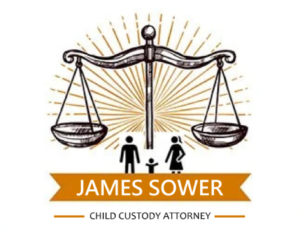Legal Separation v/s Divorce
There are times when the unexpected happens in life. One such period is when a married couple decides to end their relationship because it has not worked out as they both expected. During these times, we have to choose to move forward and leave some precious things behind or stay in the unfavorable or stressful present.
In California, when two spouses decide to withdraw from their marital life, they ultimately have two options: divorce or legal separation. While divorce is the permanent dissolution of your marriage, legal separation means that both spouses live separately but can reunite any time they wish as a married couple. Both are pretty much the same nature, except for the finality and permanence of the decision.
Under divorce, your marriage will be permanently annulled, conferring single status on you and your spouse. Under legal separation, the couple lives apart, but their marriage remains intact. They are both considered ‘married’ in the eyes of the law and cannot enter into another marriage until they are officially separated, i.e. divorced.
So let’s take a look at these two situations and how they differ in the eyes of the law.
What is divorce?
The law defines divorce as the permanent termination of a marital bond between two people. Also known as ‘dissolution of marriage’, spouses are considered single and are allowed to remarry if they wish after the divorce is finalized. Spouses have the option to end their marriage by mutual consent, i.e. mediation, or approach the court, which is called litigation.
If the parties opt for mediation, they can amicably resolve all disputes that follow a divorce, such as property division, child custody, child support, alimony, etc. If the parties cannot reach an agreement, they can go to court and ask the judge. to place orders for it.
What is legal separation?
California is among the states that allow legal separation, the alternative to divorce. Legal separation allows you to divide the assets and debts you have, along with child support and custody rules and parenting plans. Under legal separation, the married couple can obtain an official order from the judge to allow them to live separately and continue their lives independently. Most of the time, a couple opts for legal separation as a preliminary step to their divorce.
However, many couples choose legal separation instead of divorce, as they do not want the permanent effects of divorce to take shape in their lives.
Requirements for divorce in California
California has residency requirements to file for divorce. It states that at least one spouse must be a resident of the state of California for at least six months before filing for divorce. Additionally, the same spouse must be a resident of the county in which you filed for divorce for at least the last three months.
Residency requirements apply to all married couples seeking to file a divorce in California, with one exception. This exception is for same-sex couples. In the event that you or your spouse do not qualify for these residency requirements, you can file for legal separation and then divorce when the required period of time has passed.
If same-sex couples were originally married in California but currently reside in another state that does not allow them to dissolve their marriage, they can still file for divorce in California without meeting residency requirements. However, in this case, certain complications may arise regarding the couple’s assets and debts, as well as custody and support issues. It is recommended to speak with a divorce attorney with experience in this regard.
Requirements for Legal Separation in California
If you file for a legal separation in California, you or your spouse must be legal residents of the state. Additionally, you must also provide a reason for choosing to separate from your partner.
As a ‘no-fault’ state, California allows couples to simply cite irreconcilable differences as the reason for separation or divorce. You do not need to prove any wrongdoing by the other party to obtain a divorce or legal separation order.
When should you choose divorce?
As we mentioned above, legal separation and divorce have many similarities in procedure; However, its purpose differs. With a divorce, your legal status will change to ‘single’ and you may choose to remarry.
Divorce allows you to sever all legal ties with your spouse and give up the financial benefits afforded to married couples. Some people choose legal separation when they are unsure about divorce. They do not want to completely dissolve their marriage and give up the benefits associated with it.
Whether you want to divorce or legally separate, it is best to consult with an experienced divorce attorney to learn your options and the best possible way to move forward. Hiring an attorney like Dolores López is the best option for you to get expert help during an emotionally turbulent time.
When should you choose legal separation?
Legal separation is a viable option instead of divorce when you want to live apart from your spouse but are unsure about divorce. It is also useful when you want to divide your assets and finances and define your parental rights without opting for divorce.
Apart from the reasons mentioned above, you can also request legal separation from your spouse as a preliminary step to divorce or if your religion or personal views prohibit divorce. Some people also choose legal separation because they want to keep certain benefits of marriage:
- Receive tax benefits
- Receive government benefits; and
- Keep the joint health insurance plan active.
As with divorce, you should hire a divorce attorney who can review the details of your case and present it before a family court judge.
Understand your options
Both divorce and legal separation have their own unique nuances, so it is best that you fully understand them before making a decision. Also, remember that regardless of your choice, it doesn’t have to be a bitter court battle; You can separate or divorce your spouse on amicable terms. A divorce lawyer can help you in this regard.
If you have further questions or queries or would like to understand the legal processes of probate or divorce, Dolores López is here to help you. He has a deep understanding of California family law and a deep understanding of how the courts operate. Rely on our compassionate and qualified assistance to help you navigate these difficult times.

